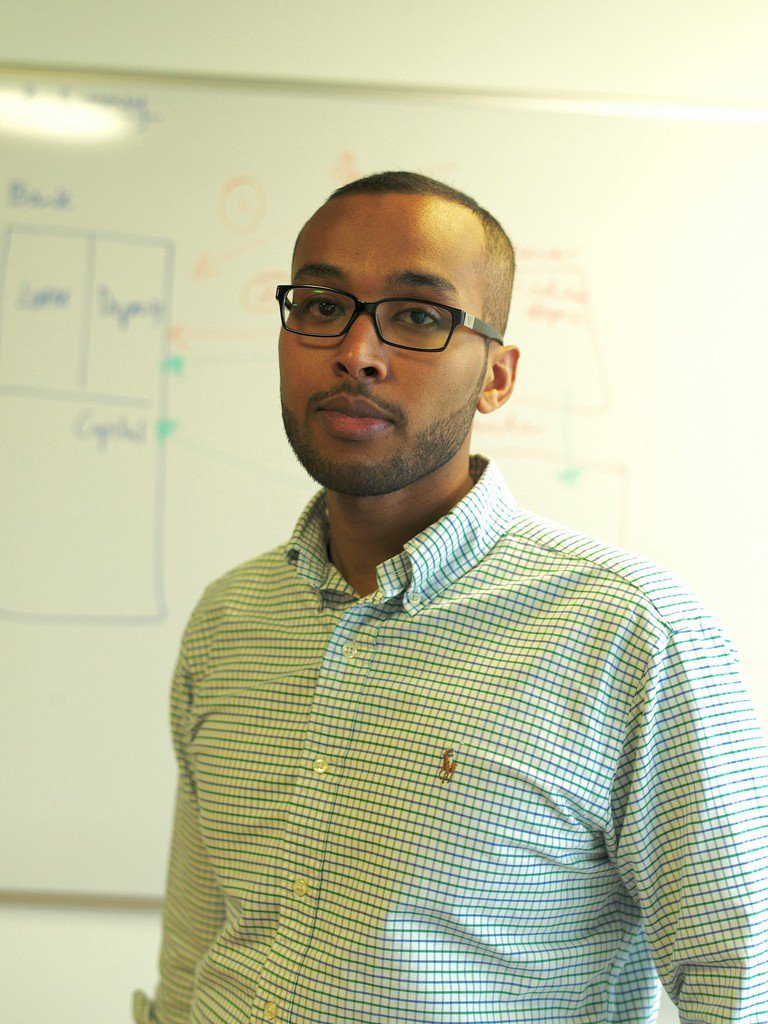“Like many Somalis, I ended up fleeing my homeland because of the civil war, back in the late 1980s. At age five I moved to the U.K. because I had family there and was able to get asylum. I grew up in a fairly nice part of London and went on to get a PhD in computer science at University College London.
“At university I started becoming more aware of the world and realized I was quite fortunate to be where I am, to have had all the opportunities that I did. So, in 2012, I helped start an organization called Innovate Ventures to train and support Somali techies. The first program we ran was a two-week coding camp in Somalia for about 15 people. Though the impact was small at the time, for those individuals it meant something, and it was my first time going back to the continent; I hadn’t visited in more than two decades.
“I started to think how Innovate Ventures could have a much bigger impact. In 2015, we teamed up with two nonprofits that were running employment training for Somali youths, found some promising startups, and put them through a series of sessions on marketing, accounting, and product design. Five startups came out of that five-month incubator, and we awarded one winner around $2,500 in seed money to help kick-start its business.
“The next year saw us partner with Oxfam, VC4Africa [an online venture-capital community focused on Africa], and Telesom [the largest telco in Somaliland], and we ran a 10-week accelerator for startups. We were hoping to get 40 to 50 applicants, but we ended up getting around 180. We chose 12 startups for a two-week bootcamp and 10 to participate in the full 10-week training and mentoring program. The top four received a total of $15,000 in funding.
“This year, the accelerator will be 12 weeks long, and we’ve received almost 400 applicants. There are some large Somali companies that are interested in investing in startups and we want to bring them on board to help catalyze the startup scene. We also hope to persuade the Somali diaspora, including some of my colleagues at IBM, to donate their skills and invest in the local technology scene.
“Countries like Kenya and Rwanda have initiatives to become technology and innovation hubs in Africa. Somaliland and Somalia face fundamental challenges in health care, education, and agriculture, but innovation, technology, and startups have the potential to fast-track the country's development. I think we’ve started to take steps in that direction with the programs we’ve been running, and we’re slowly changing the impression people have when they view Somalia and Somaliland.”
—as told to Elizabeth Woyke




